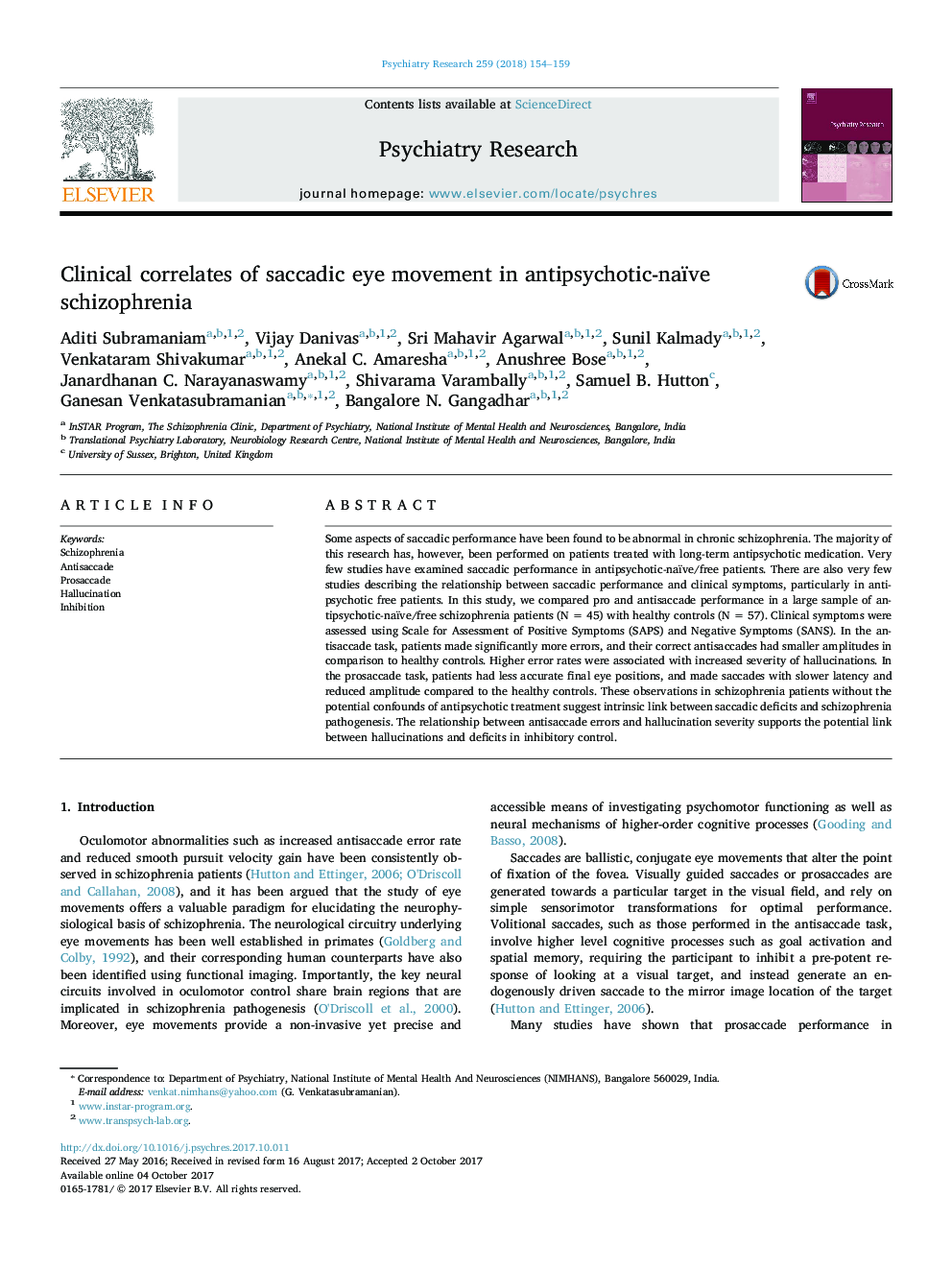| Article ID | Journal | Published Year | Pages | File Type |
|---|---|---|---|---|
| 4933015 | Psychiatry Research | 2018 | 6 Pages |
â¢Very few studies have examined saccadic eye movements in antipsychotic-naïve/free schizophrenia.â¢This study compared pro-/anti-saccades in antipsychotic-naïve/free schizophrenia patients (N = 45) with healthy controls (N = 57).â¢Patients made significantly more erroneous antisaccades.â¢Greater antisaccade error rate was associated with more severe hallucinations.â¢The relationship between antisaccade errors and hallucination severity supports the potential link between auditory hallucinations and deficits in inhibitory control.
Some aspects of saccadic performance have been found to be abnormal in chronic schizophrenia. The majority of this research has, however, been performed on patients treated with long-term antipsychotic medication. Very few studies have examined saccadic performance in antipsychotic-naïve/free patients. There are also very few studies describing the relationship between saccadic performance and clinical symptoms, particularly in antipsychotic free patients. In this study, we compared pro and antisaccade performance in a large sample of antipsychotic-naïve/free schizophrenia patients (N = 45) with healthy controls (N = 57). Clinical symptoms were assessed using Scale for Assessment of Positive Symptoms (SAPS) and Negative Symptoms (SANS). In the antisaccade task, patients made significantly more errors, and their correct antisaccades had smaller amplitudes in comparison to healthy controls. Higher error rates were associated with increased severity of hallucinations. In the prosaccade task, patients had less accurate final eye positions, and made saccades with slower latency and reduced amplitude compared to the healthy controls. These observations in schizophrenia patients without the potential confounds of antipsychotic treatment suggest intrinsic link between saccadic deficits and schizophrenia pathogenesis. The relationship between antisaccade errors and hallucination severity supports the potential link between hallucinations and deficits in inhibitory control.
